Transcripts of the Roys Report are now available! In the past several weeks, I’ve received multiple requests for transcripts, but until recently, I simply didn’t have the manpower to produce them. However, thanks to some awesome volunteers with typing skills, I now can make transcripts available.
Below is the transcript of my show last Saturday with Eric Cochran, the so-called “Pinterest Whistleblower.” This was an eye-opening show, as Eric explained how big tech companies are censoring Christian, conservative and pro-life content. Enjoy!
Transcript of The Roys Report: Are Social Media Companies Censoring You?
[pullquote]Segment 1[/pullquote]JULIE ROYS: Welcome to The Roys Report, brought to you in part by Judson University. I’m Julie Roys. And what we’re going to be discussing today sounds like something right out of the dystopian novel 1984. In that novel, the Ministry of Truth controls society by controlling all the information—news, entertainment, and I’m sure if George Orwell could have foreseen it, the internet, as well.
In 1984, citizens learn only what the ruling party wants them to learn. And they’re shielded from facts that might cause them to question the party line.
Well, my guest today says that’s precisely what’s happening right now in the United States. All the big tech companies like Google, Facebook, YouTube, and Pinterest are censoring pro-life and Christian content. These companies say they’re a neutral platform, but they’re not. They’re more like publishers with a decidedly liberal and anti-Christian bias.
Your tax-deductible gift helps our journalists report the truth and hold Christian leaders and organizations accountable. Give a gift of $30 or more to The Roys Report this month, and you will receive a copy of “Hurt and Healed by the Church” by Ryan George. To donate, click here.
My guest knows this because he used to work for one of those companies. That is, until very recently when he blew the whistle on his employer—and subsequently, got fired. His name is Eric Cochran. And until a couple weeks ago, he worked as an engineer for Pinterest. But then Eric, offended by what his employer was doing, leaked internal documents to Project Veritas—and soon after, he was fired. So, Eric, welcome! I’m so glad you could join me!
ERIC COCHRAN: Thank you for having me, happy to be here.
JULIE ROYS: Well you know what, you’re kind of a hero for what you did, and so I, I feel really honored that I can get you on this show and, and talk to you a little bit about what happened with Pinterest, but not just Pinterest, from what I understand, it’s, it’s going on in a lot of tech companies. But Eric, why don’t you just bring us up to speed for some people are hearing this for the very first time. What did you experience, what did you see at Pinterest that made you say, this is wrong, this is un-American, and it’s kinda anti-Christian?
ERIC COCHRAN: Yeah, un-American is definitely right as we’re seeing the normalization of censorship throughout big tech. So, I was a software engineer at Pinterest, actually worked on the Android app, and I was hearing more and more about misinformation efforts and conspiracy theories that we needed to suppress as a growing, and at like 13-billion-dollar tech company. And I kind of knew what that meant; I knew that that, they weren’t being forthright, that they would just use examples of genuine misinformation to cover up for suppression of things that are just mainstream American values, like Bible verses and Christian Easter and pro-life views. And when I heard more about Facebook doing this—in fact, I saw a Project Veritas exposé on Facebook deboosting conservative content—I started to look into what Pinterest, my employer, was doing, and I was seeing that they were suppressing these, these Christian terms. They would prevent it, prevent Christian Pins—which are just Pinterest posts—from showing up near any advertisements, as we were increasing our, our advertisement Pins. And they would block Christian terms from the auto-complete search feature. And they would not recommend Bible verses and these other terms and like things about like Ben Shapiro, the conservative commentator, they would remove him from recommendations. And I knew that that was newsworthy content; I knew that the public had a right to know, and then when I looked even further, it got actually much much worse as conservative websites were put under this porn domain block list to prevent, to prevent people from ever posting, ever linking to websites like PJ Media, Zero Hedge and then ultimately Liveaction.org, one of the nation’s largest pro-life, one of the nation’s largest pro-life organizations, and so that users of Pinterest couldn’t link to Live Action. And because it was placed on this porn block list in a very covert censorship—in fact if you tried to link, if you tried to make a Pin that linked to Live Action, you’d get this weird error that was like “Oops, something’s not right”—and so you’d think like, “Oh, maybe it was just a network error, maybe it’s a bug, maybe it’s just a Pinterest bug,” but then I had the actual proof then in my hands of why this was happening from the back end of Pinterest, why this was secretly being censored, and I knew the public had a right to know. I know that, that, I knew that there had to be some transparency here, so I took these documents to Project Veritas, and Project Veritas then published an exposé exposing this, this very covert censorship going on. And the thing is, like we know that this isn’t just Pinterest, we know that this is throughout big tech; this is Twitter, this is Facebook, this is Google. In fact, just a couple weeks ago, Project Veritas did another exposé on Google from another tech insider. And the thing is, like this is, this is the moment where the tech companies can all get together, they can then point to Pinterest censorship, and they can say, “Oh look Pinterest already declared Live Action as misinformation or, or porn, or anything else, then we should also declare it that.” And so, we’re really gonna see this heavy, heavy censorship going on in big tech ramp up.
JULIE ROYS: Well this is like, I mean this is kinda scary. I likened it to 1984 in this whole Ministry of Truth, and you know big government, but this is more like big tech, but this is really scary. I mean we’re, we’re moving towards a society where we have a few elites, right, who are determining for the rest of us. I mean what it kind of makes me laugh that, that they labeled Live Action, porn. I mean it, abortion is horrific, and…
ERIC COCHRAN: Yeah.
JULIE ROYS: …But pornography, no it’s not pornography; although if it were pornography, real pornography, that seems to be just fine on the internet, that seems to get everywhere. But censoring these sorts of, again, pro-life, conservative, Christian Bible verses, I mean who are these people that are, that are running these companies? Why are they, why are they so against the things that are so near and dear to many of our hearts, which is God’s Word and the life of, of the unborn? Why are they so against it?
ERIC COCHRAN: Well you see, a lot of people, the vast majority of people in big tech, in Silicon Valley—I worked in San Francisco—and the vast majority of people really believe that they are the ministers of truth. They really believe that there are people in mainstream America who just don’t really know what’s going on, and, you know, they voted for the president because they were just deceived by misinformation, and that the, and that like Christian voices are just, they’re, they’re just not as enlightened as they are, and they’re not as authoritative as their sources. So, they point to mainstream sources; they point to establishment sources as the verifiable, trusted sources that then they can use to justify their views. And so, I think a lot of people really just believe, the people who are implementing these things, just believe that they’re doing what’s best for their users because their users just don’t, they just don’t have the intellect to, (laughter) to learn for themselves.
JULIE ROYS: (laughter) The rest of us need their help, right? I mean.
ERIC COCHRAN: Yeah.
JULIE ROYS: Yeah, yeah, and, and thank God we have them looking out for us as Big Brother and Big Sister, right, taking care of us, and they know best. It’s, it’s amazing to me how, how unbelievably arrogant these people are, but you, when you first went forward, when you went to Project Veritas, that first video, you’re, you’ve got your voice masked. And I’m guessing you thought maybe you could do this anonymously without getting outed, but you did somehow. I mean, how did that happen and how did you end up getting fired?
ERIC COCHRAN: (laughter) Yeah, so I did come forward anonymously because y’know the story is not about me, and the story is about what tech is actually doing in the dark. And so I came forward anonymously, but I knew there were risks, of course, because I was getting a lot of the proof from the back end of Pinterest, of what was going on, so I knew there were always risks. I, I don’t know for certain how they discovered it was me; it’s very possible big tech companies have logs of, of what documentation was accessed from within at what times, and so I, I definitely knew there were risks. And you know, and then after the story was, was published, you know I went into work and, and the thing was like I was mentally prepared for whatever. You know absolutely like I was dedicated to this, whatever happened to me didn’t matter ‘cause then the story was public, people knew, and then I knew that Pinterest would then have to respond in one way or another. And so, I did, I did. Well, actually that morning, after the Project Veritas exposé came out, Pinterest initially then removed Live Action from this secret porn block list and, and thought that they could probably just quietly get away with it, and just be like “Oh it was an error,” but then after the story became really big that morning, then they actually double downed. They then banned Live Action’s account on Pinterest and told them that it was… (JULIE ROYS: Okay, hold that thought, Eric. Hold that thought.)
JULIE ROYS: We’re gonna get to the rest of this story of how Eric got banned or how he got fired after he blew the whistle on Pinterest, but we need to go to break. Again, you’re listening to the Roys Report. With me, Eric Cochran, the Pinterest whistle-blower, and we’ll be right back after a short break.
[pullquote]Segment 2[/pullquote]JULIE ROYS: Facebook, Pinterest, and Twitter claim to be neutral platforms, but are they? Welcome back to The Roys Report. I’m Julie Roys. And today I’m talking with Eric Cochran—the Pinterest whistleblower—who says these big tech companies are NOT neutral. They’re liberal and anti-Christian. And they’re not really platforms; they’re more like publishers pushing a leftist agenda. Today’s program is recorded, so I can’t take your calls. However, you still can join the live conversation, I hope, on Twitter—that is, unless they shut us down or censor us today. But let’s hope they don’t—we’ll see. My handle is @reachJulieRoys and Roys is spelled R-O-Y-S. You can also chime in on Facebook by going to facebook.com/Julie Roys.
So, Eric, right before the break you were telling us the story of how you actually got fired, because again, you initially leaked some internal documents and went to Project Veritas. They interviewed you, but they did it masking your voice and your face. And then they published it, and somehow Pinterest found out. But interestingly, you are saying that at first, when Pinterest found out that you had blown the whistle, one of the things you said was that it was censoring Live Action, one of the largest pro-life groups in America, censoring all of their speech. Actually labeling Live Action as a porn site so that people couldn’t actually link to it and get to that site from Pinterest. But when they did that, initially they took that porn designation off of Live Action when they started getting the heat. Then what happened?
ERIC COCHRAN: They initially thought that the story would blow over, and they took it off this porn-block list. And by the way, we know it wasn’t an accident, in case anybody would think it would be an accident, that Live Action was on this porn-block list, because actually one of the things that even made me realize that Live Action was on this porn-block list was an internal message from some of the people who added it to the porn-block list where they specifically say they think it should remain on this list. So it wasn’t an accident. After the Project Veritas exposé came out, they actually then re-added Pinterest back onto the porn-block list with the title misinformation.
JULIE ROYS: You mean Live Action?
ERIC COCHRAN: Yes, Live Action. Then Pinterest banned Live Action’s Pinterest account as well. And they sent them an email saying “we don’t allow misinformation or conspiracy theories that put people at risk onto the site.” So, the interesting thing here is that at least they had to say this publicly. Then they had to take a stance on what they thought about pro-life content. So, Pinterest, then, is specifically saying they think Live Action’s content is misinformation and conspiracy theories. So, you know, now they’re not doing it in secret. Now everybody knows their stance. And then, for me, this was Tuesday morning after the exposé came out, I’m seeing all this from the back end. Then I go in and sit at my desk, and have my breakfast, everything seems fine. And then I noticed my internal email and Pinterest accounts that I use for coding aren’t syncing, aren’t working. And I know that then this is probably the end of my work at Pinterest. And then I just kinda sit and quietly wait for maybe like H.R. or somebody to come find me. But then after like 15 minutes or so, three security guards come up and say, “Are you Eric?” And I’m like, “Yeah, that’s me.” And they’re like, “We’re going to take you out of the building. And give us your badge and laptop.” And I give it to ‘em. And then they escort me out the building. And that was the end of my work at Pinterest.
JULIE ROYS: Wow. And you remember those things like they’re yesterday, don’t you?
ERIC COCHRAN: I do, yeah. I mean, the thing is, like leaving in front of all my co-workers that I programmed with for two years and was in the middle of projects with. But, you know, I’d do it all again. ‘Cause, like, is the thing that matters. This is the moment that matters, for sure.
JULIE ROYS: Well, and I love that you say that. And we have something in common because I blew the whistle, it was actually on my employer, the Moody Bible Institute at the time, because of some wrongdoing that was going on there. I happened to be on a flight at that time. I was actually writing my second piece on my computer. I had internet. And just when I crossed over into international waters where I lost internet, that’s apparently when they sent me an email firing me. Which is interesting because had that email not come before I had been off the internet, they could have seized my computer.
ERIC COCHRAN: Ah, that’s true.
JULIE ROYS: But because it happened when we had just lost internet, right? I’m actually on my way to Mexico. We actually land the plane. I opened my phone and there’s that email saying I had been fired. And I’m like, “Oh wow, glad that didn’t happen an hour and a half ago when I was on the internet.” It enabled me to actually go to the condo where we were staying and work with my computer to make sure that didn’t happen. But, again, those are things that are so vivid. And when you cross that line, it’s just a watershed moment. I’m just going to table that because I want to talk about this whole thing of whistleblowing because I think that is a really important conversation. I want to sort of unpack a little bit more about what’s going on at these big tech companies and what it looks like. So, walk us through a little bit to . . . you said you heard that it was happening on Facebook. There was a Google whistleblower that just came out. I don’t know if he was emboldened by what you did. It just seems like thing after thing after thing showing that there’s censorship going on at these companies. You’re an engineer. Don’t make it too technical or you’ll completely lose me and maybe half our audience, probably more than half. How do big tech companies actually censor speech? One, as you said with Live Action, is just saying, ‘well that’s pornography,’ and labelling it that way. Another way is using algorithms and things, right?
ERIC COCHRAN: Yes. Without going technically, and it will definitely vary by company. But I can speak to what Pinterest was doing, specifically. There were terms about like Ben Shapiro and about Christians. And these were terms were then were like put into our backend, the things that your web browser accesses when you go to pinterest.com. They then filter out content. When you search for content, it’ll see that this is designated to match certain patterns of words will then be filtered out of your feed. Or when Pinterest goes to send recommendations to you or send you an email or give your phone notifications, it’ll see that some of the content that you like that would normally be sent to you, matches up with some content that’s designated “unsafe,” terms like Christian Easter or Ben Shapiro or any of that.
JULIE ROYS: I was going to say, I mean, that’s shocking—Christian Easter is “unsafe.” We need to be protected from Christian Easter! God help us.
ERIC COCHRAN: And that’s one of the funny things too, to me, even a few months ago I kinda thought like, “oh that kind of makes sense.” Or like, “that’s kinda normal.” And then it hit me at some point when I was looking into this. And I’m like, “no, that’s not normal. That is newsworthy. People need to know about that. That’s not ok. That’s weird.”
JULIE ROYS: Absolutely, and tell us though too, initially, when you blow the whistle and this is all outed, and you had internal documents, that’s what I love, you basically brought their mail into Project Veritas to publish. All these people saying that it’s a conspiracy theory, now you’ve got the documents; you’ve got the evidence. You can’t really say that it’s a conspiracy theory when you’ve got it in your hands. But initially they took Live Action off the porn list, but then they put it back on, right?
Eric: Yes. And I think the only reason they took it off initially, my supposition here is that they were really hoping this would blow over. That they could really just do away with it. That nobody would be mad about this. And then when the story got really big about what they were really thinking from inside, then they had no choice but to double down. If Pinterest or any other tech company were then to say they do think that Live Action should be allowed on the platform, then they would get all of their establishment friends in the abortion lobby and in the media, to then criticize them for allowing Live Action on. So, if they had never done anything, then both sides would have been, you know, the pro-life side and the pro-choice side, would have been even. And they really wouldn’t have targeted Pinterest either way. But then they were faced with a choice, and they definitely didn’t want to tick off their establishment buddies in the abortion lobby by allowing Live Action at that point. So, they doubled-down and they were then willing to say they believed that Live Action was misinformation and conspiracy theory.
JULIE ROYS: Eric, real quick, we just have like 30 seconds. Then they also took down the Project Veritas videos, right? And YouTube took them off, and those got taken off so nobody would know about the whole controversy, right?
ERIC COCHRAN: Exactly. And this is what got really huge.
JULIE ROYS: Alright, table that thought. We’ve gotta go to break. But when we come back, we’ll talk more about that, the censorship that’s going on at all these big tech companies. You think they’re neutral, but they’re not. You’re listening to The Roys Report. I’ll be right back with Eric Cochran after a short break.
[pullquote]Segment 3[/pullquote] JULIE ROYS: Are Google, Facebook, Pinterest & Twitter neutral platforms? Or, are they “a highly biased political machine”? Welcome back to The Roys Report, brought to you in part by Judson University. I’m Julie Roys. And today I’m talking with Eric Cochran, the so-called Pinterest whistleblower.
Couple weeks ago, Eric leaked documents showing that Pinterest was censoring the pro-life group Live Action. Soon after, he was fired from Pinterest. But perhaps emboldened by Eric, now another whistleblower has come forward, saying Google is censoring conservative viewpoints there. It’s all these big tech companies.
Of course, this is really scary, isn’t it? I mean, so much of America, so many of us get our news, and it helps us form our opinions, and what we think about based on what we read online. And if Google has a liberal and anti-Christian bias, then America may develop these same biases, reading these sources, by going to Facebook, by going to Twitter, by going to Pinterest. They’re going to form what they think about things based on the information. And we have these curators of the information, these “elites” at these big tech companies.
And again, Eric Cochran joining me, this Pinterest whistleblower. Eric, this is a fascinating discussion. I’m enjoying it so much. So, thanks again for joining me. When we went to break, we were talking a little bit about the response of Pinterest. I mean, basically, there, you pulled the curtain back. You showed exactly what they were doing. You showed how they were labelling pro-life group Live Action as a porn site. They initially take it down. Then they put it back up. But then they take it back down again, right? I mean this is just ridiculousness. And then the videos that Project Veritas had made, exposing what’s going on, the big tech companies, and again, this shows the collusion, doesn’t it? All the other big tech companies, YouTube, you know, took that video down.
ERIC COCHRAN: Exactly.
JULIE ROYS: Getting that word out was really tough.
ERIC COCHRAN: Yeah, ‘collusion’ is exactly the right word here. Because we saw that YouTube removed the video. Project Veritas’ Twitter account was temporarily suspended during this. Vimeo removed Project Veritas’ account so that Project Veritas couldn’t distribute videos via Vimeo. And Reddit actually banned the Project Veritas account. And so, we’re seeing all these massive tech companies then conspire to suppress these stories. Especially as more and more tech insiders come out. And this really shows you that it’s not just one single company. These companies are talking to each other. And they know how to perform group boycotts. And they have the ability and they are using it to suppress content that makes them look bad. And they’re all establishment buddies who are helpin’ each other out. And one of the things that really gets ‘em here is one, the abortion issue. Because they know that that’s the hot topic right now. And having Live Action banned is a really big button right now that’s been pushed. And they want to protect their abortion friends, and the abortion lobby. And then the other thing is that these stories with more and more insiders have the firm proof. Because lots of conservatives and Christians and pro-lifers and other anti-establishment people in the culture right now and outside of Silicon Valley have been saying, “Hey, like, I’m seeing a lot of stuff go wrong. Like my content doesn’t get a lot of the views it used to. Like, what’s going on?” And then it’s been like, “Oh, well it’s a fluke.” Or “Oh, it’s a bug.” But then now, as seen in this Pinterest story frome the documents that I leaked, and now in more of the insider stories that Project Veritas is coming out with, you’re seeing the actual proof, the hard proof, from the back end, that the tech companies are not denying, with the actual reasons why this content is being censored and how it’s being censored on the back end from that company.
JULIE ROYS: Well, when you’re a conservative Christian, you sit there and you say, “Is this just me? Am I making this up? I mean, really, what’s happening?” ‘Cause I’ve been actually audited twice by the IRS.
ERIC COCHRAN: Wow.
JULIE ROYS: Came out just about the same time. And I’m just a tiny operation, right? I’m not dealing with millions of dollars. I’m dealing with very small amounts of money, right? I’ve been audited. Twice. Twice by the government. Unbelievable. Facebook. I can’t boost anything on Facebook right now. And granted, there was a little bit of confusion because somebody had given me their credit card to boost a story that they really wanted boosted. And then they forgot about it. And so, there was, you know, this thing with their bank, or whatever. But we got it all figured out. I sent [Facebook] the documents from the bank. It’s all been paid. Facebook still says, “Oh, they’re confused.” They can’t boost anything for me anymore. And I’m just like, again, you sit there, and you wonder, “Is it me? Or am I being censored because I happen to be a conservative Christian?” And you’re telling me it’s not just me. And I love that there’s been more people coming out too that we mentioned. That this Google insider who recently came out. I want to play a clip from him where he talks a little bit about this idea of fairness and how Google, what he’s saying is, that Google’s actually using artificial intelligence to impose its idea of fairness on the public. And then Project Veritas secretly recorded some Google executives, Jen Gennai talking about imposing this so-called fairness manipulating algorithms and things. But this is the actual interview with the whistleblower and [James] O’Keefe talking about this idea of fairness. I want to play it. And then Eric, I want your response to it.
VOICE of GOOGLE WHISTLE BLOWER
(At 05:28 on PROJECT VERITAS exposé)
Fairness is a dog whistle. It does not mean what you think that it means. And you have to apply double think in order to understand what they’re really saying. What they’re really saying about fairness is that they have to manipulate their search results so that it gives them their political agenda that they want. And so, they have to revise their algorithms so that they can get their agenda across. You know, to unpack everything that she’s saying, saying she wants the algorithm to be fair, to a hand-picked representative of that community, means that what she’s trying to do is she’s trying to sell you a product that is not objective, that doesn’t represent the will of its users, and instead, represents the will of a group of people making decisions behind the shadows.
JULIE ROYS: Again, that’s the Google whistle blower. And Eric, we have just about a minute, but fairness? What do these elites mean when they talk about fairness?
ERIC COCHRAN: Yeah. I mean, they really believe, a lot of them really believe it’s not fair that, say, Donald Trump won the election. That it’s just not fair that people, in their mind, were duped by mis-information. So, they have to bias the information that people are seeing in order to get the fair, in their minds, the fair outcome they want. What they really want is the equality of outcome. The fact is, these tech giants aren’t trustworthy sources of information because they are biasing the results in order to get the “fair” results they want you to see.
JULIE ROYS: Ok. We are talking a lot about the problem. When we come back from break, which we have to take a break right now, but when we come back from break, I want to talk a little bit about the solution. And how maybe you and I can be part of the solution like Eric was a part of the solution. Again, you’re listening to The Roys Report. I’m Julie Roys. Joining me today Eric Cochran, the so-called Pinterest Whistleblower. We’ll be right back after a short break. Again, The Roys Report. Julie Roys, Eric Cochran in just a minute.
[pullquote]Segment 4[/pullquote]JULIE ROYS: Is your conservative or Christian viewpoint being censored on social media? Welcome back to The Roys Report. I’m Julie Roys. And today, I’m discussing censorship among these big tech companies like Facebook, Twitter, Pinterest, and Google. These companies say that they’re providing a neutral platform. But my guest today says that’s a farce. These are highly political machines which are leveraging their platform to suppress Christian and conservative viewpoints.
Today’s broadcast is recorded, so I can’t take your calls. However, you can join our live, online discussion at Facebook.com/ReachJulie Roys—and Roys is spelled R-O-Y-S. Of course, that’s dependent on whether or not our discussion gets censored or suppressed. I’ve had some interesting run-ins with Facebook lately as I said in the last segment, so what my guest is telling me today doesn’t surprise me.
Also, if you’d like to connect with me or read articles I’ve written, I encourage you to go to my website—julieroys.com—again spelled R-O-Y-S. At my website are also past episodes of The Roys Report. And if you’ve missed any portion of this broadcast or just want to listen again or share with friends, I hope you do, the audio will be posted within the next hour. So again, just go to julieroys.com.
Lastly, I want to let you know that next week, we’re going to be talking about immigration. This is a super-hot issue right now, and there are Christians speaking out both in-favor-of and in-opposition-to President Trump’s policy. We’ll take a look at both sides of this issue with two guests with two different perspectives. So, you’re not going to want to miss this important discussion next week. It’s going to be outstanding so I hope you can join me next week.
Well, returning to our topic today . . . Again, joining me is Eric Cochran the so-called Pinterest whistleblower. So, Eric, I want to talk about whistleblowing in general. I’m so proud of you, you put your job on the line. I’m guessing you were making a nice salary over there at Pinterest. You lost your job. My guess is you’re going to be blacklisted by a lot of these big tech companies. They won’t have anything to do with you. Why was it worth it to you to do what you did and to pay the price?
ERIC COCHRAN: Yes, because at the end of my life, the things that matter aren’t going to be how much money I was making or whatever the comforts of my cushy job was. The things that matter will be the things that extend beyond me, the impact that I had on humanity past myself. And like, this censorship going on, this very hidden censorship going on, that’s going to affect politics. It’s going to affect the pro-life issue, it’s going to affect literally babies’ lives. This is the stuff that really matters. So to me, there was never a choice. I knew that the public had a right to know, and whatever happened to me was just ancillary to the entire fact. The other thing is that for me personally, it’s like, it’s very good to have skin in the game. Actually, I think it’s a good thing for everybody. It’s like, at some point, and especially to fellow activists in the pro-life movement, you have to get skin in the game. Otherwise, you just won’t be motivated to take action. And I think this is the watershed moment. This is the time when these big establishment companies in the media, in tech, in government, all know that Roe v Wade is going to go the way of the dinosaur and there’s going to be a fierce battle in the states over abortion restrictions, and they have to ramp up censorship right now. And that’s why I think it’s crucial that tech insiders, media insiders, other insiders that see this suppression going on, speak up now before it’s really too late.
JULIE ROYS: And how much of this, I mean you’ve said when I pass from this earth, I mean, obviously you have a good understanding of what happens. We’re all, like it says in Proverbs, like the dew that by the noontime is evaporated. Our lives don’t last forever. We don’t last forever. I mean, what’s done for eternity, matters. Obeying God matters. I mean, how much of this was between you and God, doing the right thing? Did you sense you were on a mission from God? Not to put it in Blues Brothers terms.
ERIC COCHRAN: Yeah, I mean I’m a Protestant Christian. I really do think that, yeah, that God put me in this place to do this thing and I think that’s part of why I, there was no hesitation. I knew this had to be done because if I didn’t do it, there would just be this bystander effect. Who else was going to do it? I was put in this place for this reason, to do this, to let people know about this. And again, like, at the end of the day, am I just going to be ashes, or will I have done what I was put here to do?
JULIE ROYS: And do you feel like you volunteered for this job, or do you feel more like you were drafted?
ERIC COCHRAN: I mean, I guess ultimately, I’m a predestinationist, so like I think everyone is drafted for every job. I guess that’s my answer.
JULIE ROYS: Yep, that’s how I felt, exactly how I felt. You get in that position. You didn’t mean to be in that position, but somehow, you’re in this position. And you know the information. Now what are you going to do with it? You know what you can do with it, and you took that step. Yet, I heard you say in another interview, somebody asked you how many Christians are in these big tech companies? How many are there? Just a few? Or a lot?
ERIC COCHRAN: I mean, a lot. And the fact is, even if it’s a small percentage, it’s still a lot. I mean, Google employs over 100,000 employees and that’s just in Google and so like, just let’s say, extremely conservatively, there’s only 10% Christians. Let’s just say, even more conservatively, there’s say only 5% pro-lifers, maybe 1% are pro-lifers who’ve seen pro-life censorship. That’s still a lot of people on the inside. And the thing is, you’re put there for a reason. I think everybody has these moments where they’re given the opportunity to have a lasting impact on history, on humanity. And really the question there is for them, like, are you going to continue living, you know, in comfort? I mean, that’s really easy. There’s a lot of inertia. The hardest part in getting started is making contact with Project Veritas then just sending an encrypted message, a secure message. But then you can go along with everybody else, go with the status quo. And then again, there’ll be this bystander effect and unfortunately, it’ll go on.
JULIE ROYS: It’s called cowardice, but bystander effect is good too. There’s an epidemic, I think, of cowardice in our country and we have Christians who are sitting back and allowing these things to happen. If everybody in big tech, if every Christian stood up and said “I’m not going to participate with this. I’m going to call it out. It’s wrong and we’re all going to quit our jobs today.” What would happen?
ERIC COCHRAN: We would see so much pressure on big tech if that happened. The end of censorship would have to happen overnight because there would be such insane pressure. I mean, as much as the media wants to suppress this story and all of that, even if just a few more insiders came out and said what they’ve seen and showed us what was going on inside the big tech companies, there would be so much pressure, the censorship would have to end. And also, we’d see action from Congress that’s been very slow to act and is just now getting the ball rolling on saying these tech companies are not neutral platforms. They’re actually publishers and they need to be treated under law as publishers.
JULIE ROYS: And I think, we’re told in Scripture, that in the end all of our work will be shown for what it is. If we built with precious stones, then it’ll last, right? But with hay, stubble and all those things, it’ll be burned up. But each person’s work will be shown in the end. And it says some of us will get to heaven as one escaping the fire, right? I don’t want to get there as one escaping the fire. I don’t want to be ashamed of what I did in my life the rest of my life. I mean, the rest of my eternal life. This one really doesn’t last that long. The next one lasts forever, for eternity. I don’t want to get there and have regrets. I want to get there and say, “You know, I didn’t leave anything at the end of the race, right?” We used to talk about that in cross-country, how you want to cross that line and have nothing left. That’s how I want to be at the end. How about you Eric?
ERIC COCHRAN: I absolutely agree. I tell people, “Don’t have anything left. What are you saving your ammo for?” I mean, this is the moment. James O’Keefe, the founder of Project Veritas, he talks about this justice complex. There are a few people in the world that have this unquenchable desire for justice, and they’ll enjoy the fight for justice. It really is an adventure. And that’s the thing, like, that’s part of why again there’s no question, no hesitation for me about this is what needs to be done. People need to know because I’m not going to leave this adventure on the table. This was the moment to tell people. And the fight for justice is always worth it.
JULIE ROYS: I want to play another byte from this Google whistleblower on why he decided to be a whistleblower. I don’t know if this guy’s a believer. I don’t know what his background is, we don’t know, but I love what he has to say. Listen to this.
VOICE OF GOOGLE WHISTLEBLOWER: It reminds me a lot of Fascism. It’s not just about burning books. When videos get pulled off of a platform, that’s also a form of censorship. I’ve been living this for years and so you know, yeah, that’s what it is. For some people it’s shocking but for me it’s like this is one we can afford because it is shocking. People have no idea that it’s happening. They still think that Google’s an objective source of information, and it’s not.
INTERVIEWER: Are you afraid?
VOICE OF GOOGLE WHISTLEBLOWER: I’m afraid. I was more afraid. But I had a lot of difficulty with the concept of my life ending because of this. But I imagine what the other world will look like and it’s not a place that I’d want to live in.
JULIE ROYS: Wow. Powerful words. Did you ever fear for your life, Eric?
ERIC COCHRAN: Not really. I don’t think big tech actually has goon squads. I think maybe big government does. In a more figurative manner, definitely. Like, I’ve lost friends, and my life is in upheaval and everything. But again, it’s all part of that adventure and that justice complex that makes it all worth it.
JULIE ROYS: Yeah, I call it “the justice meter.” If you have a justice meter, like for me, if it gets tripped, I can’t live with that, you know, and you can’t sleep at night. You have to do something. But it costs. It always costs. And it cost you, Eric, and I’m just really pleased you were willing to do it. We have just a few seconds left, 60 seconds. Speak to the person right now who is maybe on the fence. Maybe not at a big tech company but maybe they need to speak out about something they’re seeing that’s wrong. What would you say to them?
ERIC COCHRAN: I’d say the hardest part is taking the first step. And after you take that first step, then so many people have your back 100%. I mean, when I came to Project Veritas at projectveritas.com/brave and told my story, everybody 100% had my back. James O’Keefe had my back. He made me his mission, and I’ve gotten so much support from new friends and from old friends.
JULIE ROYS: And it’s worth it, people, it’s worth it, right? Oh man, I wish we had so much more time to talk but again, that’s Eric Cochran, the Pinterest whistleblower. Thank you, Eric, for what you did. Thanks for joining me and thanks to all of you for listening today. If you missed any part of this, the entire podcast will be posted on my website julieroys.com, spelled R-O-Y-S. Have a great weekend.
Note: This transcript has been slightly edited for continuity.




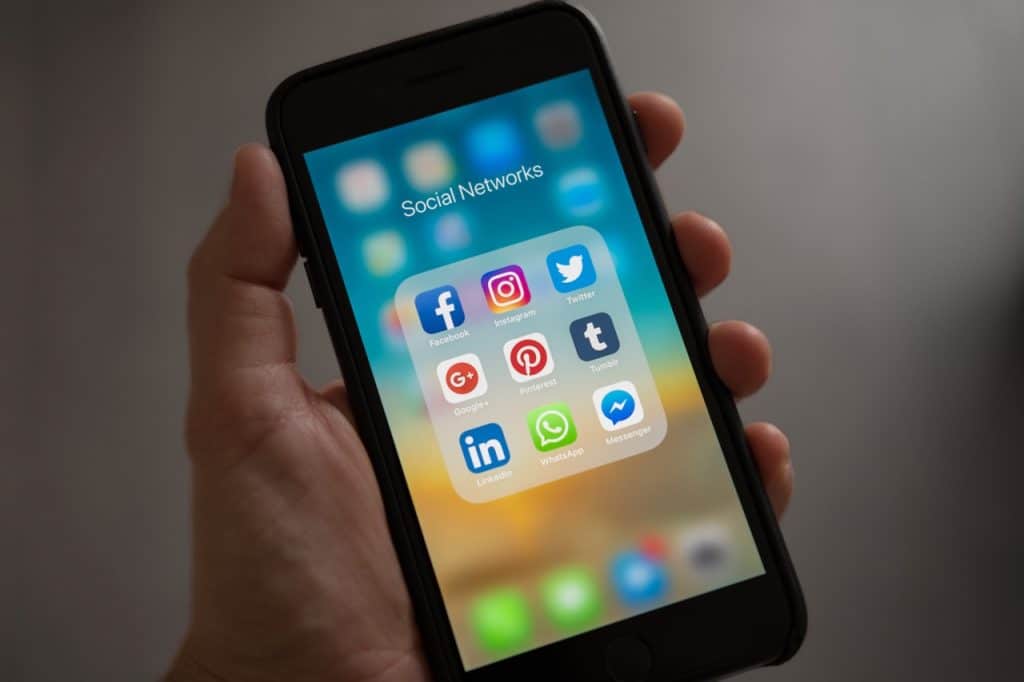
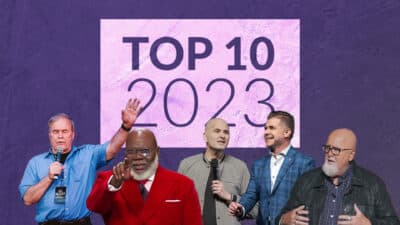

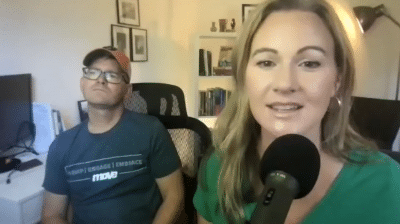

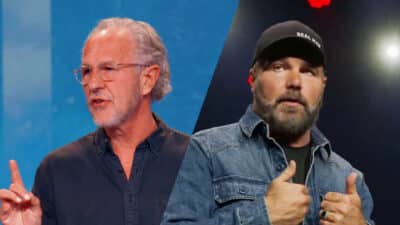

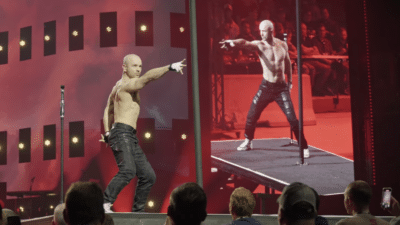

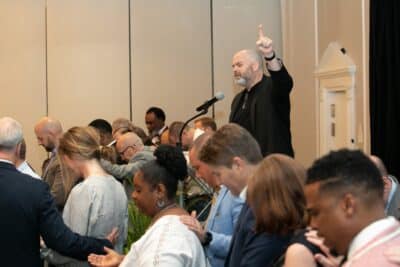






3 Responses
Thank you, Julie Roys for all that you do. Thank you, also, to whoever typed this up; it’s easier for me to read it than to listen. I kept thinking of that portion of Scripture that says Satan is the prince of the power of the air; so, I guess we shouldn’t be surprised at these developments. I don’t think that means we shouldn’t use airwaves, but rather we continue to fight for the truth.
Speaking of Facebook: A blog article https://legalinsurrection.com/2019/07/facebook-labels-st-augustine-quote-as-hate-speech/ , based off of the article published in the Catholic Herald: https://catholicherald.co.uk/news/2019/07/16/facebook-labels-st-augustine-quote-as-hate-speech/
No “Big Brother”!